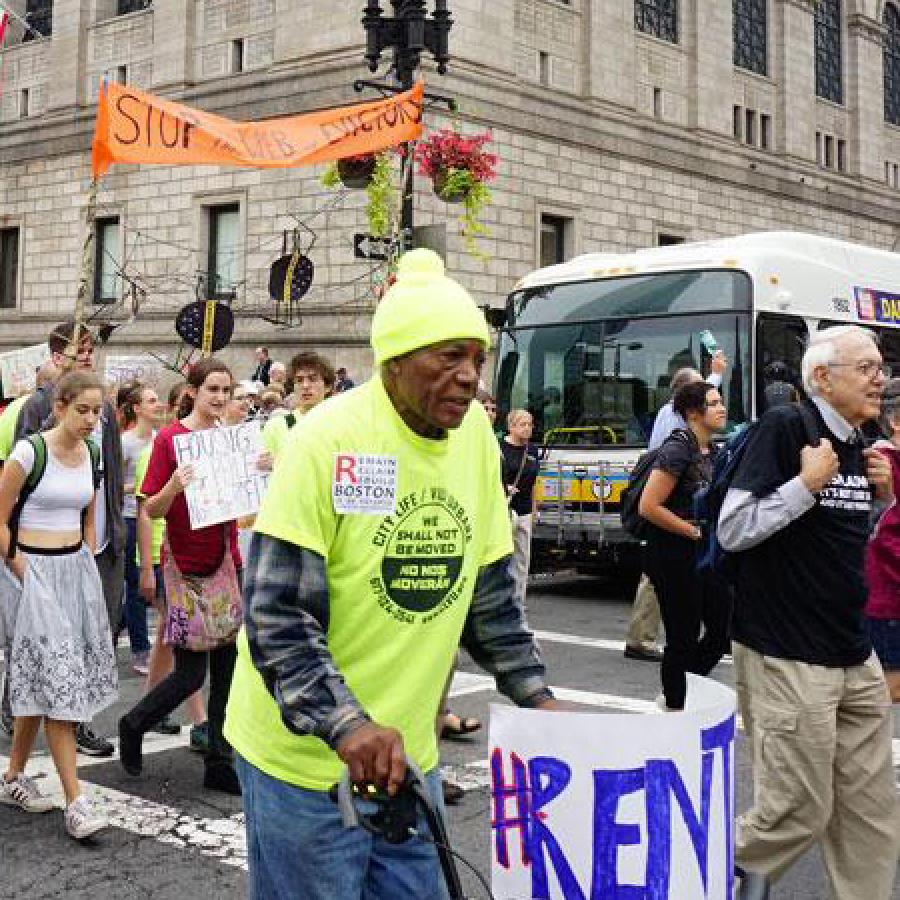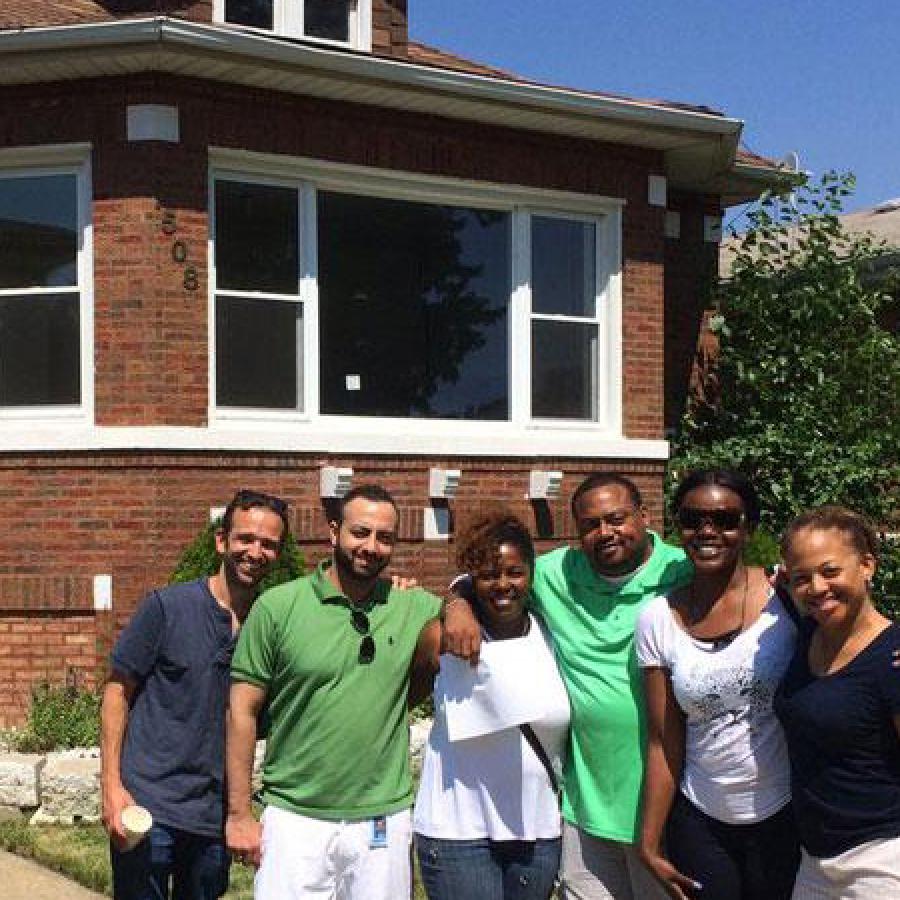Meet the Entrepreneurs Creating an Arts and Culture-Based Economy in Post-Coal Appalachia
Last November, voters in Kentucky expressed confidence that President Trump could deliver on his promise to revive the coal industry, and he carried the state with 62 percent of votes. But in the heart of Appalachia, there's a strong network of businesses and nonprofits that are looking beyond coal, and embracing equity-focused regional economic development for marginalized communities — creating employment opportunities in technology and innovation, and arts and culture, as even more promising growth industries for the region.
In rural Letcher County, Kentucky — population 23,000 — just 12 percent of adults age 25 or older have a bachelor's degree, and 33 percent of residents live below the federal poverty level. But Letcher County is also home to creative entrepreneurs and artists working to cultivate a more equitable economy. "We're thinking about ways to move forward in a post-coal economy," said Jeremy McQueen, CEO and co-founder of Mountain Tech Media, which provides technology and digital design services out of its base in Whitesburg. "Companies like ours are really offering solutions for workers and communities that used to rely on coal to be able to participate in an economy that's thriving."
The 12-person company provides a wide variety of branding, marketing, and strategizing services to both small and large businesses in the region, including video and audio productions, web design, app development, graphic design and illustration, and social media management. "I think we are helping folks in our region find the branding and the reach that they're looking for without trying to hire some ad agency in a larger city," which, as McQueen explained, "is usually out of their price range and out of their comfort zone as well."
An upstart "doing cool things"
McQueen doesn't see Mountain Tech Media as the vehicle for Appalachia to skip-step its way to become the next Silicon Valley. He said that businesses in the region have basic, behind-the-times tech needs to be addressed. The company could work on just websites and promotional videos for the next five to 10 years and still not meet demand. But the goal of Mountain Tech Media is to empower local businesses to think beyond their existing horizons and to provide professional development opportunities for their workers.
Mountain Tech Media has a worker cooperative model, giving team members equity in the company and involving them in the governance of the business. "I really was interested in the worker co-op model from the very beginning, but I had never heard of it done in a tech or a digital design company," said McQueen. "I think everyone involved now does not have a doubt that it was the right move. We've seen such a sense of pride and self-worth in all of our team members owning a piece of the company and making decisions about what we do next."
So far, Mountain Tech Media has contracted with 34 organizations and contributed an estimated $200,000 to the regional economy through their work. Founded in 2015, it surpassed its first-year projections in just the first six months of 2016 and surpassed its three-year projections in the span of a single year. The group is well on its way to exceeding its projections for 2017.
After being profiled in the New York Times, the organization was contacted by the City University of New York to work on a few projects. According to McQueen, "They wanted to get something out quick and decided to reach out to an upstart company like ours that was doing cool things in Appalachia." Nonprofit clients are quick to mention their relationships with Mountain Tech Media in grant applications, a sign that they see investments in their organizations as investments in Mountain Tech Media, and vice versa.
The culture hub at the heart of Appalachia
Mountain Tech Media took shape and has grown with the help of Appalshop, a grassroots arts and culture organization based in Letcher County since 1969. In 2014, Appalshop's leadership partnered with Lafayette College's Economic Empowerment and Global Learning Project (EEGLP) and researchers from Imagining America: Artists and Scholars in Public Life (IA) to launch the pilot program for a national initiative for community revitalization and economic development based in creative placemaking and placekeeping. Through this partnership, Appalshop has formalized its role as the anchor of the Letcher County Culture Hub. In addition to Mountain Tech Media, several other projects radiate from Appalshop's core efforts: a radio station, a youth media institute, a theater company, a regional archive, a downtown retail association, and much more. In order to create a college-to-career pipeline of workers to fill the needs of startups like Mountain Tech Media, Appalshop has also started a tech and media certificate program in conjunction with Southeast Kentucky Community and Technical College.
For years, Appalshop has been training youth in media production and other community development initiatives, and now that pipeline can also connect young people in the region to employment opportunities with businesses like Mountain Tech Media. This summer, the company will employ four media interns to help produce "Upload Appalachia," a youth-driven film series about social entrepreneurship in the region.
"Appalshop is one of the largest cultural anchors in Appalachia and has produced a wealth of creative content over the last 50 years," said McQueen. "They incubated us as a company and gave us access to a lot of networks and resources and equipment. We were able to save a lot of overhead costs right away. We've had so many meetings and conversations with new partners who really dig what we are doing because we are affiliated with Appalshop."
Cultivating an arts and culture-based economy
Peg & Awl Public House (formerly known as Village Trough) is a worker-owned local and organic food vendor and event production business based in Berea, Kentucky. "We have a mission to reconnect people with local food and local producers and hosting and encouraging community events," said co-founder and owner Ali Blair. Along with Berea Tourism, Peg & Awl Pub began sponsoring First Friday Berea in 2014, a monthly block party bringing together local artisans, food vendors, and musical acts to activate and revitalize the Old Town neighborhood. Peg & Awl's long-term goals include lifting up and connecting artists and small arts-and-culture-based businesses in the region and helping artists turn side incomes into sole incomes.
Peg & Awl Pub was introduced to Mountain Tech Media as a fellow worker cooperative early on and contracted with them to produce merchandise — first for the food business, then for First Friday Berea. "The work that they're producing is really top-notch and kind of makes us feel like we have a leg up with them doing the design work for our tee shirts, posters, and marketing materials, which are really pieces of art," said Blair. "We want people to collect those things."
This year, the Berea Arts Council won $25,000 from the Mortimer and Mimi Levitt Foundation to allow them to expand their programming to produce a 10-week music series, Levitt AMP Berea. Mountain Tech Media not only designed marketing pieces for the series and supported social media outreach, but also became a sponsor as a way to support local creative placemaking efforts.
While there is plenty for supporters of an arts and culture-based Appalachian economy to celebrate right now, there are also looming threats on the horizon. "With a lot of federal arts funding facing budget cuts, I think there are a lot of people asking what we are going to do," said Blair. "What we see on a national level is definitely being reflected in our backyards."
But Blair also maintained that no matter what locals might think is the best way to focus economic development efforts — reviving coal jobs versus teaching out-of-work miners computer skills or encouraging people to start their own small businesses — the solutions have to be homegrown. "We don't want to be reliant on other people coming in to fix our problems," she said. "There's a lot of pride in us trying to do that ourselves."
"There are very differing opinions about what counts as positive economic growth," she continued. "A lot of people don't value art and think artists should get a 'real' job. We really feel that arts are absolutely needed to create thriving places for us to live and raise our families."
To learn more about Appalshop's youth-focused job training, as well as other equity-focused arts and culture policies, check out "Creating Change through Arts, Culture, and Equitable Development: A Policy and Practice Primer," a new PolicyLink report highlighting how arts and culture strategies are being embraced to help create equitable communities of opportunity.


